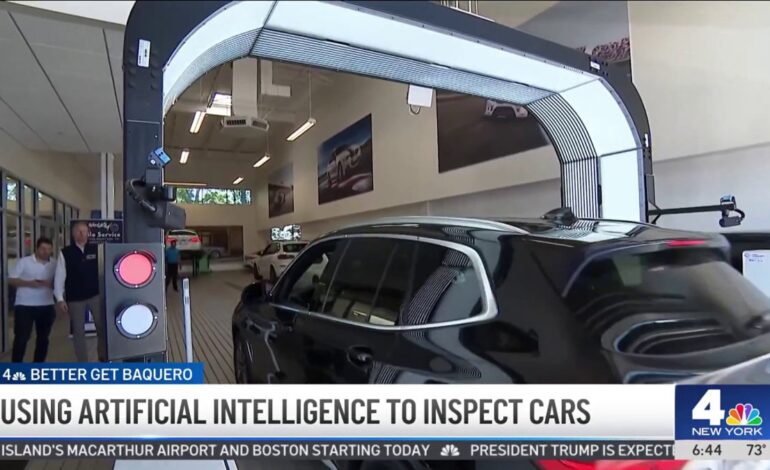
Revolutionizing Car Inspections with AI: A Glimpse into the Future
Artificial intelligence is making significant strides in the automotive industry, particularly in car inspections. This innovative technology offers enhanced accuracy, efficiency, and reliability. Discover how AI is utilized in vehicle assessment and what this means for the future of car maintenance and safety.
AI’s Role in Modern Car Inspections
The automotive industry is embracing artificial intelligence to revolutionize car inspections. AI systems are capable of detecting minute anomalies in vehicle components that might be overlooked by human inspectors. By incorporating machine learning algorithms, these systems continuously improve their accuracy by analyzing vast amounts of data. The precision of AI aids in identifying potential issues early, reducing the risks of breakdowns and costly repairs. Furthermore, AI-driven inspections expedite the process, allowing for quicker diagnostics which are essential in fast-paced settings like car rental services and fleet management.
Benefits of AI-Enhanced Vehicle Assessment
AI integration in vehicle inspections offers numerous advantages. Primarily, it ensures more accurate and consistent evaluations than manual inspections. This precision helps in maintaining higher standards of safety and reliability. Additionally, AI systems operate on a 24/7 basis without fatigue, ensuring ongoing productivity. Moreover, data collected from AI inspections can be used for predictive maintenance, potentially saving car owners significant amounts of money by addressing issues before they escalate. This technology fosters trust among consumers, knowing that their vehicles have been thoroughly and objectively assessed.
Future Implications of AI in Automotive Maintenance
Looking forward, the implementation of AI in car inspections is just the beginning. As technology advances, AI is expected to integrate seamlessly with other automotive technologies, such as autonomous driving systems. This integration will further enhance vehicle safety and performance. AI could also play a crucial role in the development of smart cities, where interconnected infrastructure requires real-time data from vehicles. This could lead to more efficient traffic management and reduced environmental impact. Ultimately, AI has the potential to redefine automotive maintenance, making it more proactive, precise, and protective.
Conclusion
The application of artificial intelligence in car inspections marks a pivotal shift in the automotive industry, promising enhanced safety, efficiency, and reliability. As the technology evolves, AI is poised to further revolutionize vehicle assessment and maintenance. This offers significant benefits to consumers and the industry, paving the way for safer and smarter future transportation.




